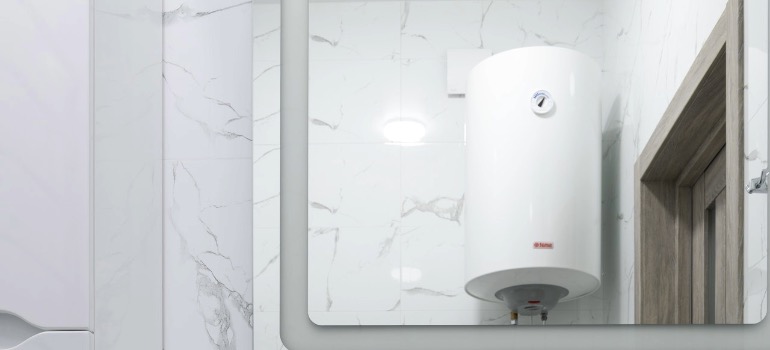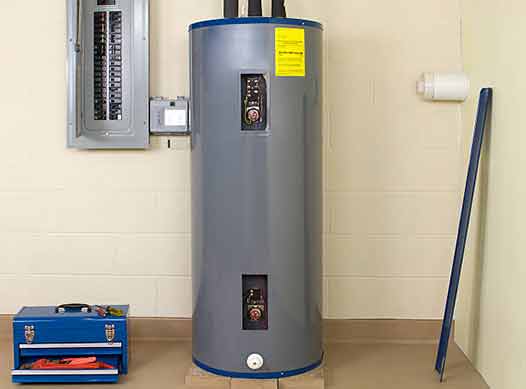
Selecting the right water heater is a critical decision for homeowners. It impacts not only daily comfort but also household expenses. The market presents various options, but the predominant choices remain electric and gas water heaters. Both types have distinct benefits and limitations. Given the variability in energy costs and the importance of long-term savings, it’s essential to understand the differences between these two. This article aims to thoroughly compare these options for homeowners, examining their initial costs, operating expenses, efficiency, and other relevant factors. With this knowledge, homeowners can make informed decisions that suit their needs and budget.
Understanding the Basics of Electric Water Heaters
Electric water heaters are among the most common types used in households today. These units employ electric resistance coils to heat water stored inside a tank. When a hot water tap is turned on in the home, cold water is drawn into the bottom of the tank, ensuring a consistent supply. As the cold water enters, the electric elements activate to heat it. Given their mechanism, electric water heaters don’t require external venting, which makes their installation straightforward in many settings. The simplicity of their design means fewer moving parts, which can translate to fewer maintenance issues. However, their reliance on electricity means that their operational costs can be influenced by fluctuating electricity prices.
Delving Deep into Gas Water Heaters
Gas water heaters are a popular alternative to their electric counterparts. They use a gas burner at the bottom of the tank to heat the water. This burner is typically fueled by natural gas or propane. A chimney or vent system is essential for these units, ensuring that combustion gases are safely expelled outside. When comparing electric and gas water heaters, it’s noteworthy that gas units tend to heat water faster, which can benefit households with higher hot water demands. However, they come with their own considerations, such as proper ventilation and periodic checks for potential gas leaks to ensure safe operation.
Initial Costs: Electric vs. Gas
When homeowners invest in a new water heater, the initial cost is pivotal. Electric water heaters typically come with a lower upfront price for the unit. Their installation, being less complex, often translates to reduced labor costs. Conversely, gas water heaters might have a heftier purchase price. Additionally, installation can be more intricate, potentially requiring gas line setups or modifications, which can drive up costs. It’s beneficial for homeowners to find local residential plumbers who can provide accurate quotes and breakdowns based on individual needs. When weighing electric against gas, considering both the unit and installation costs will give a clearer picture of the total initial investment.

Operating Costs: Electric vs. Gas
Once installed, the recurring expenses associated with running a water heater become the primary concern for homeowners. Electric water heaters, while often cheaper to install, can have higher operating costs in regions with elevated electricity rates. That is especially true if the unit isn’t energy efficient. On the other hand, gas water heaters frequently boast lower monthly operational expenses, given that gas is often cheaper than electricity in many areas. However, these costs are susceptible to fluctuations in local gas prices. Homeowners should contact companies offering water heater services for insights into optimizing efficiency. By comparing the operating costs of both types of water heaters in their specific regions, homeowners can gauge which option is more economically feasible in the long run.
Regional Factors that Influence Cost
Location heavily influences the cost dynamics associated with water heaters. It’s observed that utility expenses can oscillate widely based on region. In some locales, affordable electricity makes electric heaters a financially wise choice. In contrast, certain areas where gas is more economical can make gas heaters more appealing. Climatic conditions introduce even more complexities. Heaters work overtime in areas that experience colder temperatures, escalating energy use and bills. You should keep this in mind if you’re choosing a heater for a new home located in a region much different than your last one. As noted by Van Express Movers NJ, it’s common for homeowners to completely disregard regional differences of this kind when they move far away. However, homeowners must assimilate this knowledge to optimize water heater costs and efficiency.
Maintenance and Longevity
The longevity of a water heater isn’t solely about the quality of the unit purchased; it’s intrinsically linked to how well it’s maintained. Electric water heaters, with fewer moving parts, often last longer and experience fewer issues over time. However, when problems do arise, they can sometimes be pricier to address. Gas water heaters, while robust, may demand more frequent maintenance checks due to their combustion process. Properly scheduled check-ups ensure optimal performance and mitigate risks like gas leaks. For homeowners, understanding how to maintain your water heater seasonally is pivotal. Regular maintenance not only prolongs the heater’s lifespan but also ensures it runs efficiently, saving costs in the long run and providing peace of mind regarding its safe operation.
Environmental Impact and Sustainability
In today’s eco-conscious world, the environmental impact of appliances extends beyond personal costs. Both types of water heaters have varied footprints on the environment. Electric heaters’ environmental impact largely depends on the source of the electricity. The carbon footprint is minimal if derived from renewable sources like wind or solar. However, the environmental cost is higher if the electricity comes from coal or non-renewable sources. While often more energy-efficient, gas water heaters emit greenhouse gases like CO2 during combustion. It’s a trade-off: although they might use less energy overall, they release emissions directly into the atmosphere. For homeowners committed to sustainability, understanding the environmental implications of both options is crucial in making a choice that aligns with both practical needs and eco-friendly values.
To Wrap Up on Electric And Gas Water Heaters
The debate between electric and gas water heaters is nuanced, with each type presenting distinct advantages and challenges. While electric units might shine in terms of ease of installation and safety, gas heaters often come out on top in areas where gas is a cheaper utility. Environmental considerations, safety protocols, and regional factors complicate this decision-making process. Ultimately, homeowners should prioritize their specific needs, household budgets, and long-term goals when choosing. Engaging with professionals for advice, understanding regional utility rates, and considering long-term operating and maintenance costs are key.

